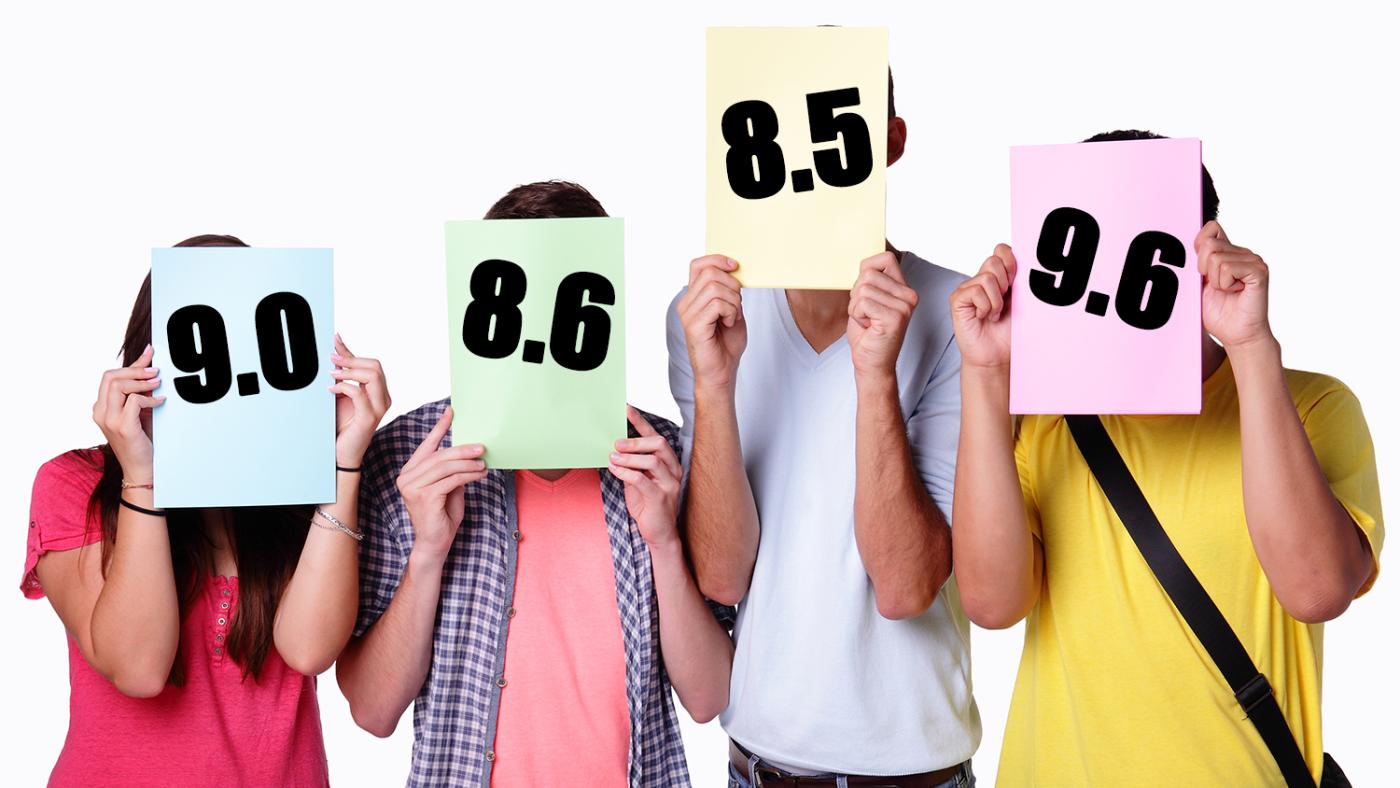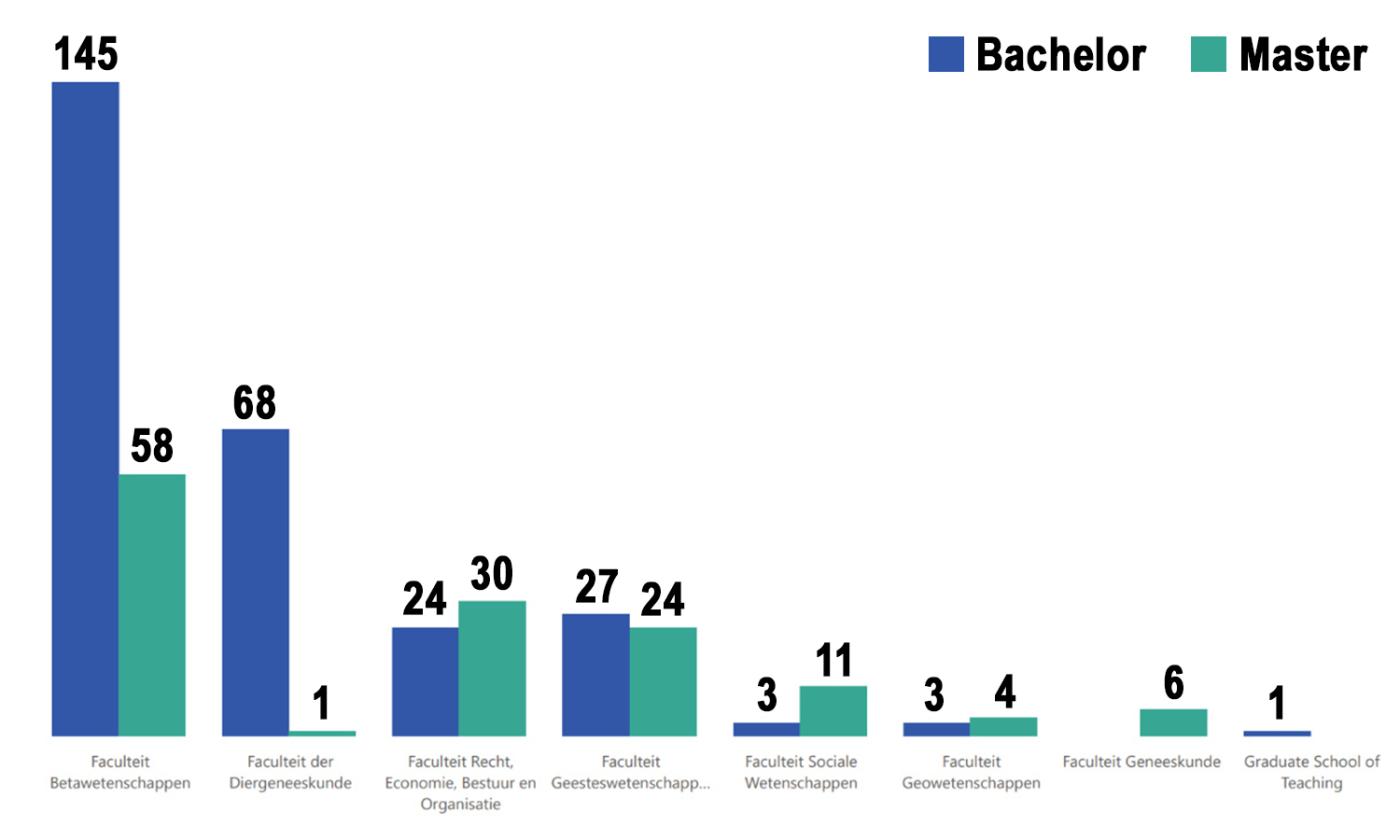DUB panel discusses the Dutch grading culture
Should it be easier for students to get a 10?

Soon, UU students will be busy taking exams again. Many of them will be happy to get a 6, while others will work hard to get a better grade. We wondered how often UU students manage to get the perfect score.
Figures from the university's Department of Institutional Research show that about 0.2 per cent of UU courses were completed with a 10 last year, totalling 409 tens across the entire university.
Courses often consist of more than one test or assignment. So, if someone scores a 10 for a course, they probably received multiple 10s within that course. Results of individual assignments are not recorded by the university as a whole.
Wondering which faculty is more likely to give students a 10? That's the Faculty of Science, where 0.7 percent of undergraduate courses and 0.6 per cent of graduate courses were completed with a 10 in the past three years. This may be explained by the fact that in some STEM subjects, such as mathematics, it is possible to provide an absolutely right answer.
Number of 10s by faculty at the Bachelor's and Master's levels in 2023-2024:

Source: Institutional Research / UU
Klein Gebbink, Deputy Dean of Education of the Faculty of Science, has a hard time drawing conclusions based on the figures above. He also wonders what is "normal", noting that "normal" could be different for the many different disciplines in his faculty.
It's actually pretty hard to get a 10 at the Faculty of Geosciences. Vice-dean Tine Beneker says that this outcome "raises questions". She has "no idea" why so few people get 10s in her faculty. "Without insight into the data, it is difficult to say anything about this."
UCU is missing from the overview, but the way. The university college gives no numbered grades, so there are no 10s. A+ is the one that comes closest to a 10. In total, A pluses form 1.83 per cent of all grades given at UCU.
Should 10 remain an exception?
We asked the members of the DUB panel whether they think 10 should remain an exception when grading a thesis, exam, essay, presentation, internship or assignment. We were also curious to know if they have ever given anyone, or received, a 10 themselves.
Biologist Suzanne Ruijtenberg:
"For me, a 10 means everything is right and there were no mistakes whatsoever. In an exam, this means that all questions were answered correctly. It doesn't happen often, but it does happen. The last time I gave anyone a 10 was about a year ago. It was an interim test for a third-year subject. Although the exam was not well made, some students got this exceptionally high score.
"Things are different for internships and reports. If 10 means everything is perfect, with no mistakes, it is hard to imagine anyone making no mistakes in a nine-month internship or a thesis that is perfect in every detail. It never happens. I have occasionally given a 9.5 to students who were exceptional in their internships, but that remains an exception."
Educational scientist Kirsten Buist:
"This is an interesting debate, which I have had with international students on occasion, regarding expectation management. They wonder: "If the highest possible grade is a 10, why not give it to a paper or something similar?"
"I have never given anyone a 10 for a written assignment like a paper or thesis because I have never come across a written product that is completely flawless and with no room for improvement. The highest grade I have ever given for a paper was 9.5. 9 is a slightly more common grade, but even that is exceptionally good or high."
Master's student in Life Sciences Sterre van Wierst:
"A 10 is exceptional, indeed. For me, as a student, it implies zero mistakes on an exam or no further room for learning, if you're talking about an assignment. Teachers say that '10 is for God’, so it makes sense that people rarely ever get this grade. The rigorous culture of grading also protects the value of assessment.
"The other day, I got a 9 for my graduation internship abroad. This had to be done by my Utrecht-based examiner in consultation with the internship supervisor because grades above 8 were not allowed. At first, I thought that was strict, but I was satisfied anyway because I was doing that internship to learn something and 9 was a reflection of the learning curve. Had I received a 10, you could argue that I might as well not have done an internship at all."
Would you like to join the DUB panel yourself? If you're opinionated and not afraid to voice your views about UU, student life, education and research, you can sign up for the DUB panel here. If you have any questions, you can send an email to dubredactie@uu.nl.